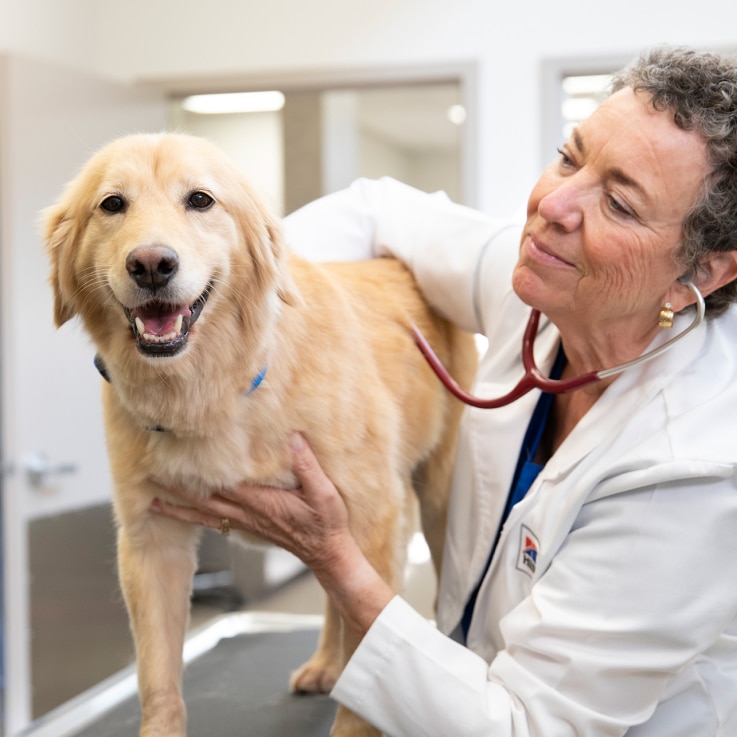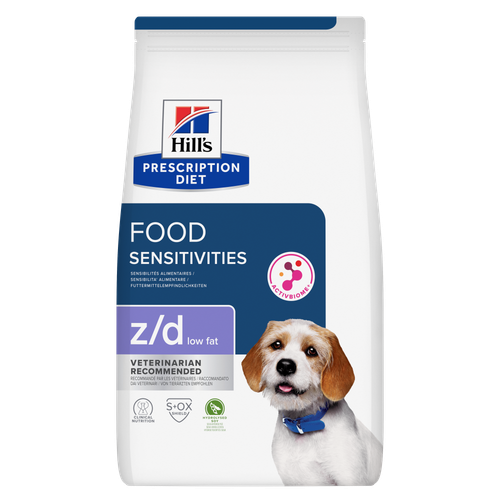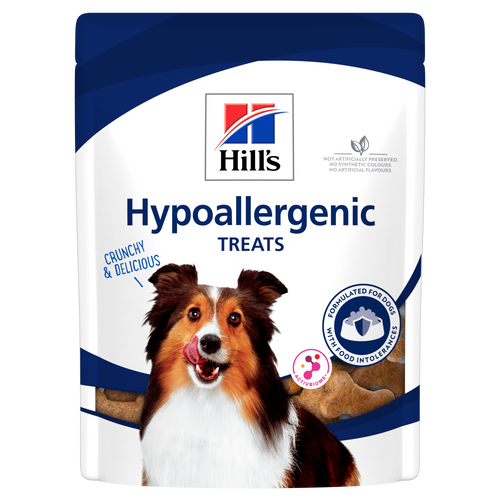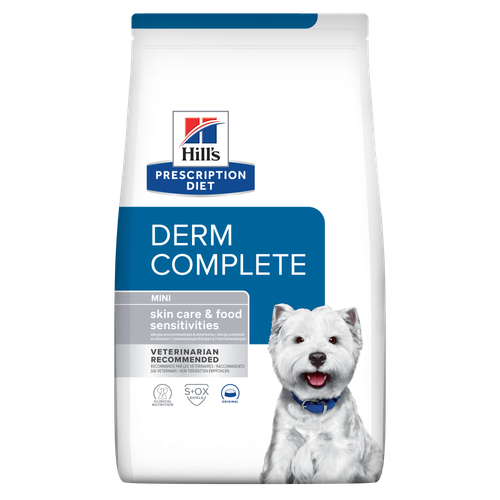
-
Find the right food for your petTake this quiz to see which food may be the best for your furry friend.Find the right food for your petTake this quiz to see which food may be the best for your furry friend.Featured products
 Mature Adult Dog Food
Mature Adult Dog FoodHill's Science Plan Mature Adult Multipack Wet Dog Food with Chicken & Beef are complete premium pet foods for mature adult dogs from 7 years. Your dog will love these deliciously smooth and savoury minced loaves, formulated to deliver the appropriate amount of energy to support the needs of adult dogs.
Shop Now Puppy Food
Puppy FoodHill's Science Plan Puppy Multipack Wet Dog Food with Chicken & Beef are complete premium pet foods for growing puppies from weaning until 1 year old and for pregnant and nursing dogs. Your puppy will love these deliciously smooth and savoury minced loaves, formulated for balanced nutrition and overall health.
Shop Now Adult Wet Dog Food with Beef
Adult Wet Dog Food with BeefHill's Science Plan Adult Multipack Wet Dog Food with Chicken, Beef & Turkey are complete premium pet foods for adult dogs from 1 year. Your dog will love these deliciously smooth and savoury minced loaves, formulated for balanced nutrition and overall health.
Shop NowFeatured products Light Adult Multipack Wet Cat Food with Chicken & Ocean Fish
Light Adult Multipack Wet Cat Food with Chicken & Ocean FishTender chicken chunks in gravy for cats, with L-carnitine and fewer calories for ideal weight management. Packed with high-quality protein, omega-6s, and vitamin E for shiny fur and healthy skin.
Shop Now Adult Multipack Wet Cat Food with Beef, Ocean Fish & Chicken
Adult Multipack Wet Cat Food with Beef, Ocean Fish & ChickenTender chunks in gravy for cats, with high-quality protein to maintain lean muscle. With vitamin E and omega-3s & -6s for healthy skin and balanced minerals to support healthy vital organs.
Shop Now Mature Adult Wet Cat Food with Chicken
Mature Adult Wet Cat Food with Chicken
Tender chicken chunks in gravy for mature adult cats. Made with easy-to-digest ingredients, high-quality protein for lean muscle maintenance and antioxidant vitamins C+E for optimal health.
Shop Now -
Dog
- Dog Tips & Articles
-
Health Category
- Weight
- Food & Environmental Sensitivities
- Urinary
- Digestive
- Joint
- Kidney
-
Life Stage
- Puppy Nutrition
- Adult Nutrition
- Senior Nutrition
Cat- Cat Tips & Articles
-
Health Category
- Weight
- Skin & Food Sensitivities
- Urinary
- Digestive
- Kidney
-
Life Stage
- Kitten Nutrition
- Adult Nutrition
Featured articles The Incredible Science Behind Your Pet's Microbiome
The Incredible Science Behind Your Pet's MicrobiomeLearn what your pet's microbiome is, how it contributes to your pet's gut and overall health, and why nutrition is important in maintaining healthy microbiomes.
Read More The Right Diet For Your Pet
The Right Diet For Your PetIn people, the right diet is very important. If you are eating the wrong way for your metabolism, activity level, age and lifestyle you could end up with health issues.
Read More Show some love with wet foods: a great choice for pets with health issues
Show some love with wet foods: a great choice for pets with health issuesShow some love with wet foods: a great choice for pets with health issues.
Read More -
Food & environmental sensitivities in dogs
Food & environmental sensitivities in dogs
Does your dog have signs of food or environmental sensitivities?
Dry, itchy skin is just one of the many symptoms that may indicate your dog is experiencing a bigger problem brought on by environmental sensitivities. In rare cases, these may also be signs of food sensitivities in dogs. These signs can be long-term, recurring, and should be noted to your vet.
















What causes sensitivities in dogs?
One of the most difficult things on a dog’s path to recovery is determining what is causing their reactions. There are two main types of sensitivities that dogs face: food and environmental. The majority of sensitivities in dogs are from environmental causes, but certain ingredients in food may cause reactions as well.
What causes sensitivities in dogs?
One of the most difficult things on a dog’s path to recovery is determining what is causing their reactions. There are two main types of sensitivities that dogs face: food and environmental. The majority of sensitivities in dogs are from environmental causes, but certain ingredients in food may cause reactions as well.


Environmental sensitivities
Recurring signs of environmental sensitivities may be caused by grasses, pollen or biting insects. They can be addressed with a multimodal treatment including medication to help reduce the immediate symptoms and nutrition for effective long-term management.


Environmental sensitivities
Recurring signs of environmental sensitivities may be caused by grasses, pollen or biting insects. They can be addressed with a multimodal treatment including medication to help reduce the immediate symptoms and nutrition for effective long-term management.


Food sensitivities
Food sensitivities in dogs are actually very uncommon - in fact, only 10% of dogs experience food sensitivities1! Rarely, however, some dogs may experience reactions to certain ingredients, and they are identified through food elimination trials conducted by your veterinarian. A food elimination trial is a process of finding and removing the food ingredient causing skin issues or digestive upsets.


Food sensitivities
Food sensitivities in dogs are actually very uncommon - in fact, only 10% of dogs experience food sensitivities1! Rarely, however, some dogs may experience reactions to certain ingredients, and they are identified through food elimination trials conducted by your veterinarian. A food elimination trial is a process of finding and removing the food ingredient causing skin issues or digestive upsets.
Managing a dog’s sensitivities
Managing a dog’s sensitivities can be a challenging process, and your first step should be visiting your veterinarian. They will help you find the right combination of nutrition, medication, and/or topicals for your dog.


Living with a dog with food or environmental sensitivities can cause you both to be restless, but the road to improvement will require time, patience and trust in your vet. Remember - just like humans, every dog is unique, and the best solution will come from working with a professional to address your pet’s specific needs. Together, you’ll get on the right track to helping your best friend feel like their best self.


Clinical nutrition plays an important role in the long-term management of sensitivities in dogs. The right nutrition can promote healthy skin from within and help alleviate your dog’s signs. Even with treatment, some dogs may have recurring signs that will require adjustments along the way, and your veterinarian will be a helpful resource in managing your dog’s sensitivities.


A vet may prescribe medication to help alleviate your dog’s signs of sensitivities. If you are wondering what you can give your dog for sensitivities, only give medication as recommended by your vet.


Topicals can be used for managing skin conditions in dogs. There are various deliveries for topicals like shampoos, lotions, sprays or ointments. Reach out to your veterinarian to ensure a specific topical is appropriate for your pet’s skin condition and life stage.


Understanding nutritional support for food and environmental sensitivities
You’ll want to ask your vet about a few things when it comes to the suitable dog food for food or environmental sensitivities. For food sensitivities, ask about clinical dog food with a single novel protein or hydrolysed protein that is unlikely to cause a reaction. For environmental sensitivities ask about nutrition that can nourish and help protect from environmental irritants.


Time to see a veterinarian?
If you notice behaviour changes or sense something is off with your dog, it may be time to schedule a vet visit.
You also may want to ask your vet if clinical nutrition would be appropriate for your dog. Hill's Prescription Diet foods are developed by a team of Ph.D. nutritionists and veterinarians, and require a vet recommendation for purchase. Schedule an appointment so your vet can assess your pet's health and nutritional needs.
More products

Clinical nutrition specially formulated with hydrolysed soy protein and low fat levels to help avoid adverse food reactions, while promoting healthy skin in dogs with food and fat sensitivities. Fortified with Hill's breakthrough ActivBiome+ Technology, which is clinically shown to rapidly activate the gut microbiome to support digestive health and well-being.

Hill's Hypoallergenic Dog Treats - a complementary pet food formulated for adult dogs over the age of 1 with food intolerances. With ActivBiome+, a Hill's exclusive blend of prebiotics, these tasty treats nourish your dog's microbiome and support their skin health.

Clinical nutrition specially formulated to help manage environmental & food allergies in dogs.

Clinical nutrition specially formulated to help manage environmental & food allergies in dogs.
Related articles

Learn about dog food allergies, including their symptoms and treatments. Discover more insights and care tips at Hill's Pet.

Learn about the warning signs, symptoms, and treatments of Allergic Dermatitis disease and other skin conditions in dogs.

Learn the proper age to spay your puppy, as well as whether adult dogs can be spayed, and possible complications to keep an eye out for following surgery.

Learn what pyoderma in dogs looks like, what causes it and how nutrition & your dog's food can play a role in preventing and treating the infection.
[1] Muller, et al. Food Hypersensitivity. In:Dyson, J., Ed. Small Animal Dermatology. Philadelphia: W.B. Saunders Company (1989), 470–474.
[1] Muller, et al. Food Hypersensitivity. In:Dyson, J., Ed. Small Animal Dermatology. Philadelphia: W.B. Saunders Company (1989), 470–474.

